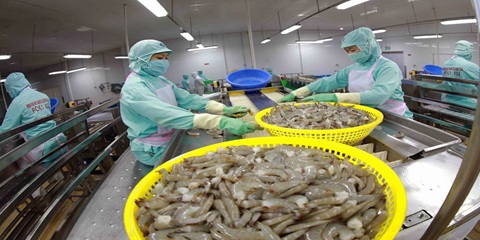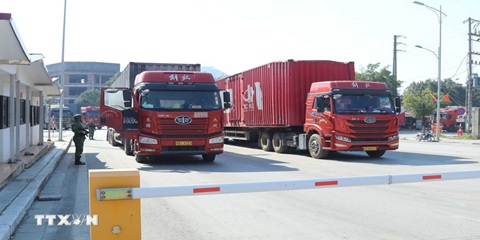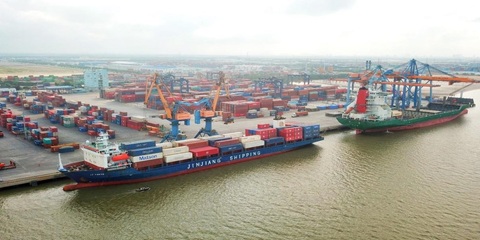Want to be in the loop?
subscribe to
our notification
Business News
REAL ESTATE MARKET: POSSIBLE RISK OF BUBBLE BURST?
After a period of rapid and vibrant growth, Vietnam's real estate market is sliding into a gloomy period because the ‘nightmare’ bubble may burst at any time.
10-year cycle
The real estate market often experiences through development stages: Growth - stability - overheating - freezing - lackluster - recovery and regrowth. Particularly, the property market witnessed overheating growth in 1993, 2001 - 2002, late 2010 and the biggest balloon in 2007.
After an overheating period, the real estate market will fall into recession or freezing. This reality actually happened in Vietnam in 1995-1999 and the most serious bubble burst was seen from early 2008 to mid-2009. There is a concern that, after the growth in 2016 - 2017, the property market will go downhill in 2019 as a result of the 10-year cycle. The potential risk of real estate bubble will continue to destabilize the economy.
According to market performance data released by the Association of Vietnam Realtors, the first quarter of 2019 witnessed 14,047 successful property deals in Hanoi, Ho Chi Minh City and some localities (like Da Nang, Khanh Hoa and Quang Nam), of which apartments and low-rise buildings accounted for 94%.
With respect to real estate prices, according to the report by the Institute for Construction Economics, in the second quarter of 2019, real estate prices in Hanoi and Ho Chi Minh City were volatile. Specifically, in Hanoi, apartment prices edged up by 0.16% in the period and separate housing prices inched up by 0.96%. In Ho Chi Minh City, according to the latest report by the property consultancy Savills, in the first six months of 2019, apartment prices set new highs. Specifically, the average apartment price reached nearly VND37 million per square meter, nearly 13% higher than the same period in 2018, and residential land prices soared 30-40% year on year all over the city.
This price surge was attributed to insufficient supplies in the wake of the legal review of real estate projects under the Prime Minister’s Directive 11/CT-TTg dated April 23, 2019 on solutions to boost stable and sound real estate market development. Since the start of 2019, the housing supply Hanoi has dropped by 25% over the same period in 2018 while Ho Chi Minh City witnessed a nearly 50% supply shrinkage.
Will real estate bubble burst or deflate?
Given the rise in real estate prices caused by supply scarcity, will a crisis or bubble burst happen in the property market as it is a “curse” of 10-year cycle. However, it is too early to draw this conclusion. To anticipate whether this crisis occurs or not, it is necessarily taken macroeconomic factors such as GDP growth, inflation, foreign direct investment (FDI) and business development index into consideration. In the first six months of 2019, the gross domestic product (GDP) expanded 7.08%; inflation climbed 4% (it soared up to 15% before the bubble exploded 10 years ago); the real estate industry drew US$5.4 billion, accounting for 27.3% of total FDI fund.
According to economic experts, the so-called 10-year cycle of the real estate market is not worrying because authorities, businesses and investors were already experienced in dealing with the real estate crisis in the early 2010s. These lessons will be useful for stabilizing the market development.
In early 2019, the real estate market was hard hit by the Circular 19/2017/TT-NHNN of the State Bank of Vietnam (SBV), effective from January 1, 2019. Accordingly, commercial banks must reduce the ratio of short-term deposits used for medium and long-term loans to 40% from 45%. Real estate loans are mainly long-term and commercial lenders cannot use more than 40% of short-term deposits for long-term loans. As a result, lenders will have to carefully consider loans for real estate projects. Real estate projects, if not feasible, will be hardly accessible to bank loans.
With this move, the Government required strict control over real estate lending in 2019-2020. By strictly controlling, restricting and disapproving underperforming projects, the Government will deflate the real estate bubble caused by overheating growth. The bubble burst scenario difficultly happens in the 10-year cycle. On the other hand, most people have a huge demand for real estate. So, in the coming time, the real estate market can develop to strengthen project leasing and selling for the segment.
For the time being, the real estate market is evolving complicatedly but there are still a lot of positive signals. Credit tightening policy forces investors to have new directions for development roadmap. In addition, secondary investors should seek for the most reasonable investment to their capacity.
Source: VCCI
Related News

VIETNAM’S SEAFOOD EXPORTS HIT OVER US$10 BILLION IN JAN-NOV
Seafood export revenue in November alone amounted to nearly US$990 million, up 6.6% year-on-year. Key product groups posted solid gains. Shrimp exports rose 11.7% to over US$385 million, supported by strong demand for whiteleg shrimp and lobster. Tra fish shipments increased 9.7% to almost US$197 million, while marine fish, squid, and mollusk exports maintained their recovery.

VIETNAM’S AGRO-FORESTRY-FISHERY EXPORTS HIT NEW RECORD IN JAN-NOV
Vietnam’s agro-forestry-fishery export revenue reached an estimated US$64.01 billion in the first 11 months of 2025, up 12.6% year-on-year and surpassing the full-year record of US$62.4 billion set in 2024. Agricultural exports reached US$34.24 billion, up 15% year-on-year, while livestock products brought in US$567.4 million, a 16.8% increase. Seafood exports rose 13.2% to US$10.38 billion, and forestry products earned US$16.61 billion, up 5.9%.

HANOI REPORTS RECORD-HIGH BUDGET REVENUE IN 2025
Hanoi’s budget revenue is estimated to reach VND641.7 trillion in 2025, the highest level ever recorded and nearly 25% above the revised target, according to a report by the municipal government. Data from the city’s socioeconomic performance review shows that total state budget collections in 2025 are projected to reach 124.9% of the adjusted plan and rise 24.9% from 2024, the Vietnam News Agency reported.

VIETNAM, CHINA TO PILOT TWO-WAY CARGO TRANSPORT AT LANG SON BORDER
Vietnam and China will launch a one-year pilot program on December 10 to allow two-way cargo transport through the Huu Nghi–Youyi Guan international border gates in Lang Son Province, reported the Vietnam News Agency. The Dong Dang-Lang Son Economic Zone Management Board said the trial aims to reduce transport costs and improve customs clearance capacity.

VIETNAM’S IMPORT-EXPORT VALUE NEARS US$840 BILLION IN JAN-NOV
The total value of Vietnam’s imports and exports was nearly US$840 billion between January and November this year, the highest level ever recorded, according to the National Statistics Office. In its latest report on the country’s socio-economic performance, the National Statistics Office highlighted a series of positive economic indicators, with trade emerging as one of the strongest drivers of growth.

OVER 19 MILLION INTERNATIONAL VISITORS COME TO VIETNAM IN JAN-NOV
Vietnam received more than 19.1 million international visitors in the first 11 months of 2025, a 20.9% increase year-on-year and the highest level ever recorded, according to the National Statistics Office. The figure surpasses the full-year record of 18 million arrivals set in 2019, before the Covid-19 pandemic. Nearly two million foreign visitors arrived in November alone, up 14.2% from October and 15.6% from the same period last year.
























